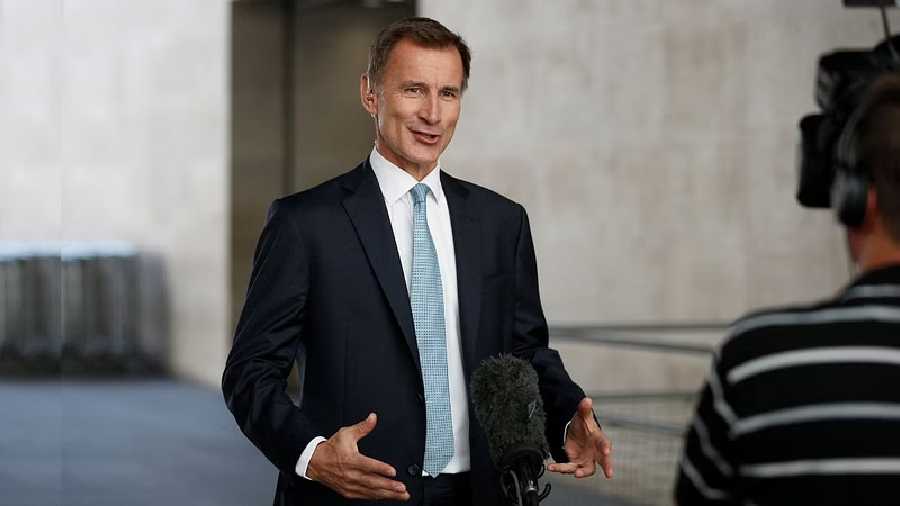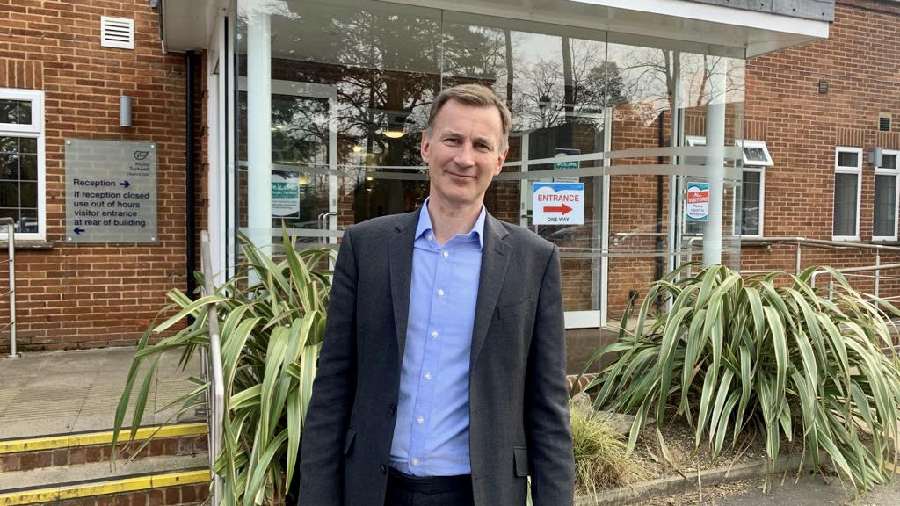Britain's new Chancellor of the Exchequer Jeremy Hunt on Monday reversed almost all of Prime Minister Liz Truss's tax cuts announced in the mini-budget last month and scaled back the expensive energy bills support in an emergency fiscal statement to reassure the jittery financial markets.
Hunt's emergency financial statement is an attempt to reassure the markets about the country's fiscal sustainability and calm the shockwaves of his predecessor Kwasi Kwarteng's mini-budget last month. Hunt said a 1 pence cut to income tax will be delayed "indefinitely" until the UK's finances improve, instead of being introduced in April 2023 as announced by his predecessor.
The government's energy price guarantee will only be universal until April next year and not for two years as originally planned.
The government has today decided to make further changes to the mini-budget, and to reduce unhelpful speculation about what they are, we've decided to announce these ahead of the medium-term fiscal plan, which happens in two weeks," Hunt said in a statement.
He announced a reversal of almost all of the tax measures set out in Kwarteng's so-called Growth Plan that had not been legislated for in Parliament yet.
With the 1p cut cancelled, the basic rate of income tax will remain at 20 per cent indefinitely, worth around GBP 6 billion a year.
The 1.25 percentage points increase in dividend tax, which took effect in April this year, will now not be cut, valued at around GBP 1 billion a year.
Further reversals include cancelling a new VAT-free shopping scheme for non-UK visitors to Great Britain and a freezing of alcohol duty rates from February 2023 for a year will also not go ahead.
On the energy price guarantee that helps households and businesses with soaring electricity bills, Hunt said the objective of limiting it to six months is to design a new approach that will cost the taxpayer significantly less than planned, whilst ensuring enough support for those in need.
Any support for businesses will be targeted to those most affected and the new approach will better incentivise energy efficiency. The most important objective for our country right now is stability, said Hunt.
After meetings with Prime Minister Liz Truss at her Chequers country retreat and the Governor of the Bank of England, Andrew Bailey, on Sunday, the new finance minister who took over at the UK Treasury on Friday decided to fast-track some of the measures before a detailed Medium-Term Fiscal Plan as scheduled for October 31.
It was widely expected that more of the so-called Trussonomics of unfunded tax cuts would be ditched in Monday's statement after the Bank of England's emergency long-term government bond buying measures come to an end.
It will be followed up by a statement in the House of Commons on Monday evening.
The UK Treasury had confirmed that the Governor of the Bank of England and the Head of the UK's Debt Management Office have been briefed on these new plans, which seem to already have a positive impact on the markets as the Pound Sterling rebounded against the US Dollar.
The bond markets also suggested an easing of recent pressures, given additional concerns in some quarters after the Bank of England concluded its emergency gilt market support on Friday.
The central bank issued its own statement ahead of financial markets opening after the weekend to say that its operations, aimed at helping pension funds battling higher collateral demands, had enabled a "significant increase in the resilience of the sector".
The markets saw unprecedented turmoil after former Chancellor Kwarteng's tax-cutting mini-budget, partly due to the lack of an OBR forecast of how these would be funded.
Meanwhile, Truss continues to face her own turmoil after sacking good friend Kwarteng after just 38 days in the job with at least three of her backbench Conservative MPs calling for a change in leadership.
Tory MPs Crispin Blunt, Andrew Bridgen and Jamie Wallis have publicly stated they believe she should resign, while Opposition Labour leader Sir Keir Starmer has called on Truss to face Parliament and accused her of being "in office but not in power".
While Hunt has insisted the Prime Minister is still in charge, there is a widespread view that the new finance minister is now the de facto leader as he unpicks the bulk of the economic policies Truss had campaigned on during the leadership contest with former Chancellor Rishi Sunak.












